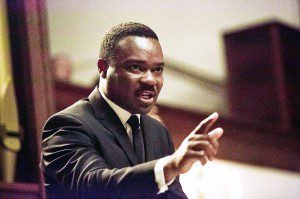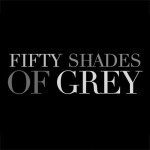That’s what some are saying, anyway. Even though 2014 was supposed to be the year of the Christian film (and in many ways, it was), faith-driven movies have barely been mentioned this awards season.
“With one exception, movies that told stories of faith, though big at the box office last year, failed to tickle the fancy of those making the [Academy Award] nominations,” wrote Mark Kellner of The Deseret News. That sole exception was Selma, which detailed the 1965 Civil Rights marches from Selma to Montgomery. Besides that, it’s hard to find a film that fits the faith-based bill.
Granted, you wouldn’t expect explicitly Christian movies—flicks like The Song or When the Game Stands Tall—to become Oscar darlings (one such film, Alone Yet Not Alone, perhaps strongarmed its way to a Best Song nomination last year, but the nom was quickly revoked). Christian film is getting better, but it’s got a while to go before that happens.
But Hollywood also passed on faith-centric films from Hollywood’s elite. Despite plenty of faith-driven films to pick from, few made Oscar’s cut. No Oscar noms, even in technical categories, for Ridley Scott’s Exodus: Gods and Kings or Darren Aronofsky’s Noah. (Between the two, they’ve been nominated four times for Oscars.) Unbroken and Interstellar—two movies with lots of pre-release awards buzz and some deep spiritual themes—only snagged a couple of Academy Award noms apiece, and then only in technical categories.
The most criminal omission in my mind was Calvary, an amazing story of a good priest trying to help a doubting, often mocking Irish town. It was easily one of my favorite films this year, and with an 89% “freshness” rating on Rotten Tomatoes, it seems plenty of critics agreed with me. But alas, Oscar didn’t care for Father James’ parish any more than the parishioners did.
So, maybe explicitly spiritual movies failed to turn the Academy’s head this year. With this year’s crop of nominees, it still showed a willingness to at least engage with the subject of faith—and that hasn’t always been the case.
For decades, Hollywood didn’t denigrate religion as much as it ignored it. From 1930 to 1968, movies were pretty much forbidden under the Hays Code from defaming or ridiculing religion, and Hollywood’s response was to (with some notable exceptions) steer clear of the topic whenever possible. After the Hays Code went away, there was still an aversion from bringing up faith, and for the same reason we don’t talk about it over family dinners: Nothing can rile up people more than a good feisty conversation about faith.
That absence of spirituality in movies always felt strange to me, given the religiosity of most of America. A full 78 percent of us say that faith is important to us, according to a Rasmussen poll from last year. About 76 percent of us say that prayer is an “important part of our daily lives,” according to the Pew Research Center. When more than three-quarters of us pray every day, it’s weird that so few do so on screen.
 But while today’s crop of Oscar nominees don’t push faith or ooze spirituality, they do acknowledge that religion and God are things that can and do motivate us. They show that religion is something that impacts us here and now—for better or worse.
But while today’s crop of Oscar nominees don’t push faith or ooze spirituality, they do acknowledge that religion and God are things that can and do motivate us. They show that religion is something that impacts us here and now—for better or worse.
In American Sniper, protagonist Chris Kyle tells us that he can answer “to my Creator” for every shot he took, and he never goes anywhere without his Bible. But does he ever open it, someone asks. That’s a fascinating statement for me, expressing the tension between cultural Christianity and what the Bible really says.
On the flip side, we feel the tension between faith and non-belief in The Theory of Everything. We see the brilliant Stephen Hawking discussing his disbelief in God … even as he imagines what a miracle—a life-changing miracle—it would be if he found the power to stand up and retrieve a pen.
In Boyhood, Mason’s dad gives up a wild, bohemian life when he meets the right woman—a woman who just happens to have been raised by deeply religious parents. These smiling, well-meaning folks give Mason a Bible for his 15th birthday—a present that doesn’t seem to mean much to him. And yet, these new “grandparents” of his have given his father newfound stability, and that security radiates down to Mason himself. And frankly, these two Bible-beaters are perhaps the kindest, happiest people we meet during the movie.
Selma, of course, is embroidered with deep, sincere, life-changing faith. It’s Christian themes are unmistakable. And I believe that the sort of faith that Martin Luther King Jr. displayed can indeed change the world.
 But I wonder whether those smaller expressions of faith found in Oscar’s other nominees—even if it’s the tentative grasping at its mystery—better reflect our own, quiet experience with the transcendent: Our doubt. Our longing. The tension we feel between what the Bible says and what the culture (even our Christian culture) tells us. The people we meet who makes us sometimes wonder whether they know something about God that we don’t.
But I wonder whether those smaller expressions of faith found in Oscar’s other nominees—even if it’s the tentative grasping at its mystery—better reflect our own, quiet experience with the transcendent: Our doubt. Our longing. The tension we feel between what the Bible says and what the culture (even our Christian culture) tells us. The people we meet who makes us sometimes wonder whether they know something about God that we don’t.
Sure, maybe Oscar didn’t go to church this year. But it’s willing to sit down and ponder and wonder. And that’s something to be thankful for.













